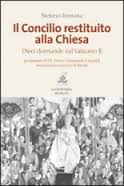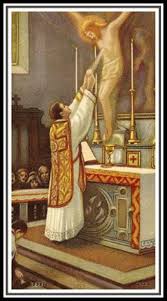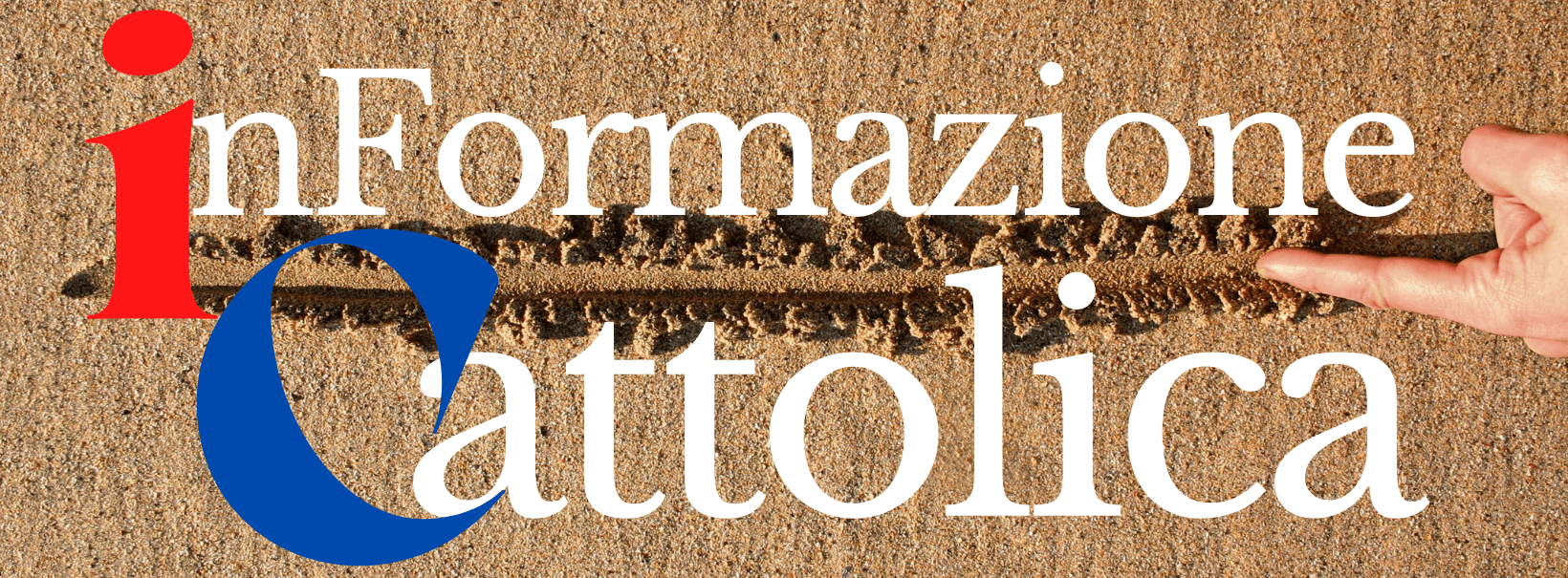 Osservatorio Internazionale Cardinale Van Thuan
Osservatorio Internazionale Cardinale Van ThuanNewsletter n.472 13 maggio 2013
An inquiry into Vatican II with Stefano Fontana, author of the book “The Council Restored to the Church”
By Benedetta Cortese
I have the impression this Year of the Council is not of much help in understanding the Council. Many publications have reiterated well known positions without a single step forward. According to their orientation regarding Vatican II, the various circles and other groupings call on this or that speaker to confirm one thesis rather than another. Being proposed anew is the same rigid scheme. I expected much more and much better than that.
In his famous speech on 22 December 2005 Benedict XVI had set out the lines for the correct hermeneutics of the Council? Isn’t there anything left of that at all?
Already at that time the two main trends had interpreted the pope’s speech as a confirmation of their own positions. And that’s how they continued, as if the pope had not even spoken. The commemoration of Vatican II often took place to the sound of slogans and clichés. Continuing to exercise a tight grip on people’s minds is an inexistent and unreal Council, but by now this has assumed the dominant position of a collective apriori, a vulgate of the Council that in no way perceives the problems lying behind the Council. The Council is honoured not by turning it into an emphatic apotheosis, but by understanding it along the lines indicated by Benedict XVI and his predecessors.
You have written a book about the Council. Why?
In an effort to understand the Council, which means situating it in its proper position. Pretending the problem does not exist means, de facto, accepting two churches. The Council is a problem that cannot be sidestepped.
The Council a problem, or the post Council a problem?
Putting the Council into practice has been a problem, but the Council was one as well. This does not mean the Council is not authoritative, does not deserve obedience, even less so contains errors, or is to be considered a “minor” Council.
So, what is the Council ‘problem’ all about?
It consists in its pastoral disposition. This may seem paradoxical, but that’s the way it is. The Council’s pastoral disposition or nature was supposed to be the solution to problems, but it actually became a problem in itself.
In what way?
I’ll give you a brief list of some core problems connected with the pastoral disposition of Vatican II. Weren’t previous Councils pastoral as well? They were dogmatic Councils, but is dogma totally alien to pastoral work or the apostolate? Is it possible to have a purely pastoral Council that does not rethink doctrine as well? In the mind of Paul VI the answer to that question was clearly ‘no’! Therefore, Vatican II rethought doctrine as well.
Hence, it was also doctrinal, albeit not dogmatic. What value does the doctrine set by Vatican II have insofar as the Council itself claimed to be pastoral? Vatican II’s primary objective was not to rethink doctrine, but to pose and ponder questions about the pastoral nature of the Church. Pastoral requirements, however, demanded a rethinking of doctrine at large, and this led to a pastoral Council that rethought doctrine at large, perhaps even more so than previous Councils that had taken a position only on single doctrinal issues. These are but a few examples.
Benedict XVI said the Council is not a super-dogma, but when elected pope he immediately said he wanted to put the Council into practice. Do you tackle this issue in your book?
The Council has often become a super-dogma. Here’s another paradox: a pastoral Council that becomes super-dogmatic. It seems that everything the Church had done before was completely wrong. The celebration of the Mass with the old rite was considered the main heresy, but that’s the way the Church had always celebrated Mass. The catechism of Pious X was also considered heretical.
Anyone who spoke out against the Magisterium was canonized as a “precursor” of the Council. How can these biased and farfetched interpretations be avoided? By implementing the Council as Benedict XVI said. In order to put it into practice, however, it is necessary to understand it in its true reality. Therefore, I see no contradiction in these two statements of Benedict XVI.
You say: “understand it in its true reality”. Your book is entitled “The Council Restored to the Church”. It this what you mean?
Yes, precisely that. The world has often taken possession of the Council. The Church must recuperate it for herself, situate it in her own tradition, while at the same time surmounting forms of nominalism. Everyone says they agree with this affirmation, but they then have differing traditions and conceptions, and so the ambiguity starts all over again.
What are the main conceptions of tradition now prevailing?
I’d say Ratzinger’s and Rahner’s. According to the former there is a core of unchangeable truths handed down, albeit in the historicity of tradition. In the second case the interpretation and reception of tradition are an integral part of the message itself. Assuming primacy in the first case is doctrine, and pastoral disposition in the second case.
Does this mean Vatican II proclaimed the primacy of pastoral disposition over doctrine?
Nowadays, in fact, the pastoral element has prevailed over doctrine to the point of making the latter disappear in many cases. In some of the chapters in my book I describe many cases of ecclesial behaviour that bear witness to this in an eloquent manner. The problem is to determine if this primacy of the pastoral element was present in Vatican II itself, or if it is due to defects in application.
The thesis I argue in my book is that in Vatican II there were ‘cracks’ through which the thesis of the primacy of pastoral concern later made its way into the Church; not intentional cracks, but cracks nonetheless. That was not the intention of either the popes or the Council fathers, even if, historically speaking, it can be proven that some Council fathers would have wanted to introduce forms of modernism into the doctrine of the Catholic Church. But this did not transpire thanks to the doctrinal and pastoral watchfulness of the pontiffs and the assistance of the Holy Spirit.
In the 1960’s all the fashionable theologies heralded the primacy of practice over theory. .
Yes, they did. But neither John XXIII nor Paul VI wanted that. And yet the stress on the pastoral disposition could have lent itself to such interpretations. Let me give you an example. With respect to the world, and following the specific indication provided by John XXIII, the Council expressed more of an appreciation than any condemnation. Theologians at that time argued that Christ loves the world and not the Church, thereby suppressing the Church’s salvific mission regarding the world. These two things are incompatible, but in the atmosphere of the 1960’s the so-called “openness to the world” provided cracks also for these distorted interpretations, which have born bitter fruits all the way to today.
In your opinion, did the Council want to express a complete doctrine on the relationship with the world?
This is another problem to be put in its right place and restored to the Church. The Council did not want to expound Catholic doctrine as a whole. To this end it is necessary to avail ourselves of the Catechism. For example, this means that Gaudium et spes did not claim to set forth the entire doctrine concerning the Church-world relationship. In this pastoral Constitution there is no mention of communism. Is it possible to lay the complete doctrinal grounds for the relationship with the world without speaking about communism?
The choice made pursued pastoral aims, but also entailed doctrinal consequences. But those who might draw the conclusion that communism was no longer a problem for the Church only because the Church had not referred to it would be misunderstanding how things stand. That would be tantamount to saying the devil is not a problem for the Church because Vatican II makes no mention of him. But the Catechism does. It is very detrimental to attribute to Vatican II the desire to express and expound the entire faith of the Church, which would erect it as a super-dogma far above the Catechism and apostolic tradition. However, there is no sense denying that this was done, and continues to be done.
In your book you dedicate considerable space to the issue of the language of the documents of Vatican II. Can you tell us something about that?
Here again, this is a problem to be put in its right place and restored to the Church. Vatican II was not a dogmatic Council and therefore, instead of using definitive language, employed what some people call narrative language. As a result it is often difficult to have a precise understanding of its teachings. A phrase or sentence in a document necessarily has to be connected with other phrases in the same document, and not rarely is it necessary to complete the global picture with references to other Council documents.
Even in this case, however, we often fail to get a complete overview of the issue or subject in question. The fact of the matter is that the Magisterium later clarified and specified many things. If everything had been clear from the outset this wouldn’t have been necessary. The famous first sentence of Gaudium et spes always quoted by everyone, including those who have read nothing else from the Council, transmits no precise theological meaning and has to be completed by other phrases from that and other Council documents. Quite often, however, people cite the Council with quotations intended to impress their listeners or readers, without going beyond them and hence turning them into a definition of faith.
Benedict XVI has been defined as ‘anti-Counciliar’. What do you think?
The popes are neither ‘Conciliar’ nor ‘anti-Conciliar. In other words, they neither dogmatise Vatican II by placing it above the faith taught by the Apostles, nor do they explain it away as a chance event in time. The Council falls within the mainstream of the tradition of the Church from which it draws light.
Therefore, what awaits to be done?
Much indeed is the work to be done, and it is going to take a long time. Benedict XVI has given us the line to follow. It is necessary to speak about the Council, but not on the basis of ingrained and personal ideological positions or the clichés that seem ever present on people’s tongues. Benedict XVI has indicated a way: a bottom – up movement, which, with the guidance of the Holy Father, discovers the Council anew, seeing it within the tradition of the Church and not in contrast with that tradition. A rediscovery not under the hallmark of ‘rupture’, but that of reform in continuity, which is slow and progressive, increasingly aware and widespread. I hope my book as well may serve to this end.




